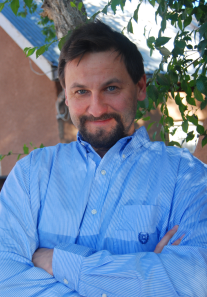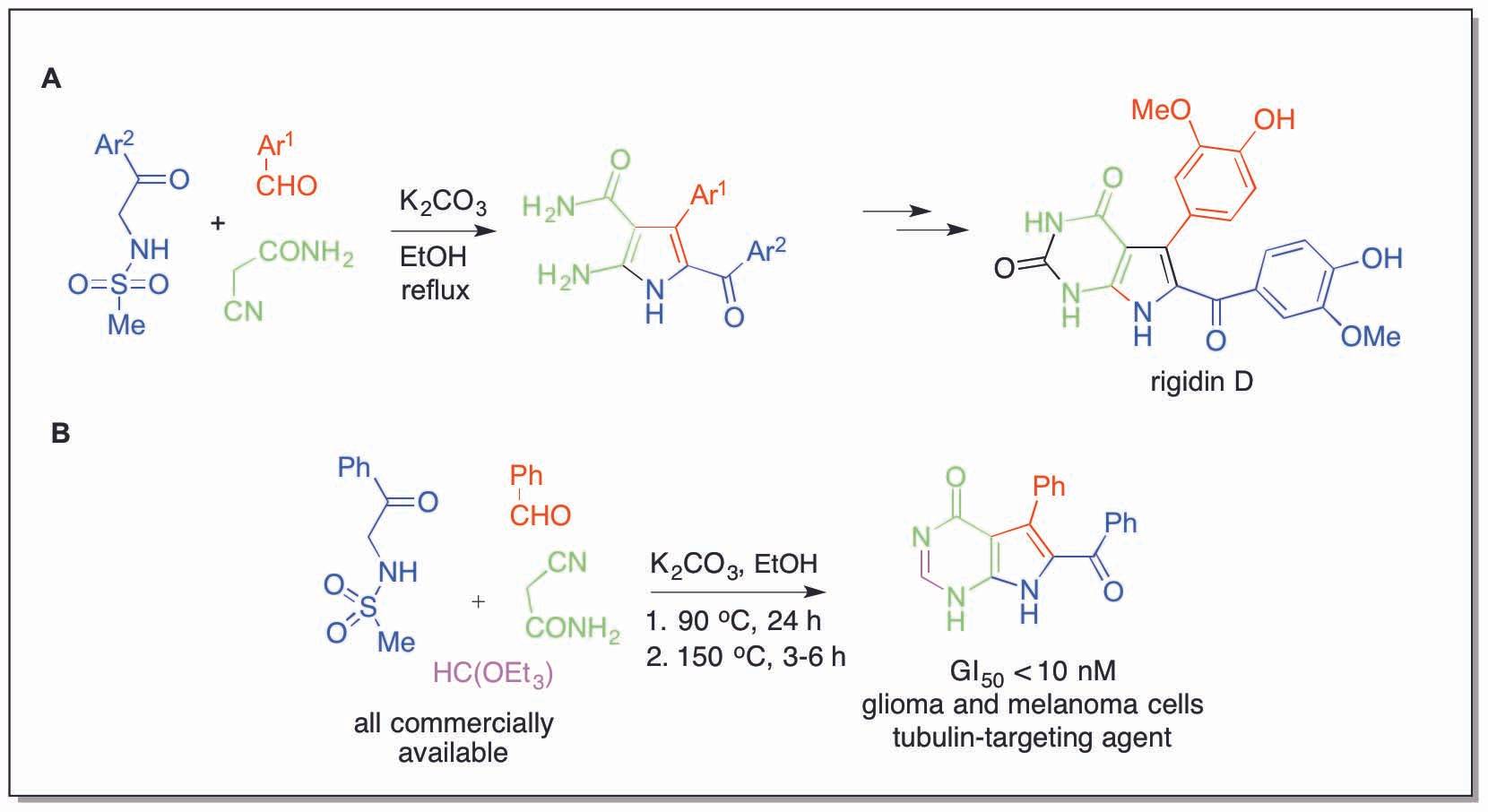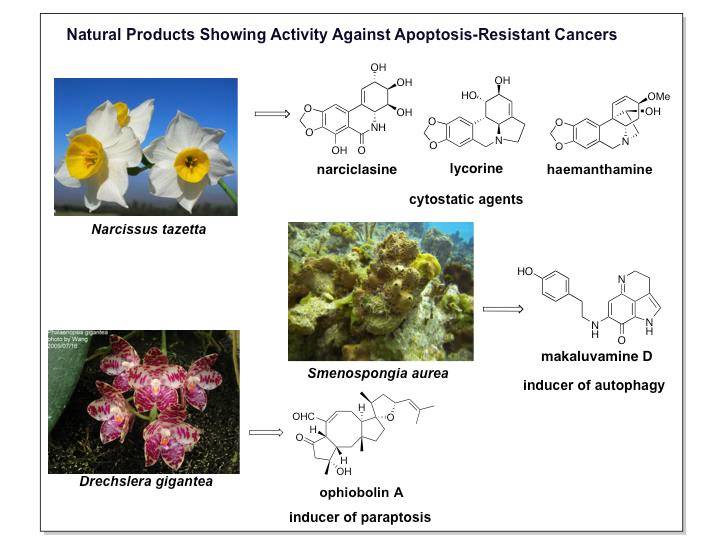Dr. Alexander Kornienko
Professor
 Contact Information Office: CHEM 319 Phone: (512) 245-3632 Fax: (512) 245-2374 email: a_k76@txstate.edu | Educational Background
|
Honors and AwardsDenise M. Trauth Endowed Presidental Research Professorship [2021] for his research exploring novel synthetic organic chemistry and its utilization for anticancer drug discovery. Presidential Award for Excellence in Scholarly/Creative Activities, 2016
Areas of Interest
| |
Related Web Sites | |
Research Group Page: https://kornienkoresearchgroup.wp.txstate.edu/
|
Research in the Kornienko Group


Publications
Red-light activation of a microtubule polymerization inhibitor via amide functionalization of the ruthenium photocage. Bretin, L.; Husiev, Y.; Ramu, V.; Zhang, L.; Hakkennes, M.; Abyar, S.; Johns, A. C.; Le Devedec, S. E.; Betancourt, T.; Kornienko, A.; Bonnet, S. Angew. Chem. Int. Ed. 2024, 63, e202316425.
Lessons in organic fluorescent probe discovery. Wagh, S. B.; Maslivetc, V. A.; La Clair, J. J.; Kornienko, A. ChemBioChem, 2021, 22, 3109-3139.
Photo-uncaging of a microtubule-targeted rigidin analogue in hypoxic cancer cells and in a xenograft mouse model. van Rixel, V. H. S.; Ramu, V.; Auyeung, A. B.; Beztsinna, N.; Leger, D. Y.; Lameijer, L. N.; Hilt, S. T.; Le Devedec S. E.; Yilidiz, T.; Betancourt, T.; Gildner, M. B.; Hudnall, T. W.; Sol, V.; Liagre, B.; Kornienko, A.; Bonnet, S. J. Am. Chem. Soc. 2019, 141, 18444-18454.
Novel Microtubule-Targeting 7-Deazahypoxanthines Derived from Marine Alkaloid Rigidins with Potent in Vitro and in Vivo Anticancer Activities. Medellin, D. C.; Zhou, Q.; Scott, R.; Hill, R. M.; Frail, S. K.; Dasari, R.; Ontiveros, S. J.; Pelly, S. C.; van Otterlo, W. A. L.; Betancourt, T. B.; Shuster, C. B.; Hamel, E.; Bai, R.; LaBarbera, D. V.; Rogelj, S.; Frolova, L. V.; Kornienko, A. J. Med. Chem. 2016, 59, 480-485.
Exploring Natural Product Chemistry and Biology with Multicomponent Reactions. 5. Discovery of a Novel Tubulin-Targeting Scaffold Derived from the Rigidin Family of Marine Alkaloids. Frolova, L. V.; Magedov, I. V.; Romero, A. E.; Karki, M.; Otero, I.; Hayden, K.; Evdokimov, N. M.;Banuls L. M. Y.; Rastogi, S. K.; Smith, W. R.; Lu, S. L.; Kiss, R.; Shuster, C. B.; Hamel, E.; Betancourt, T.; Rogelj, S.; Kornienko, A. J. Med. Chem. 2013, 56, 6886.
Perspective: Therapeutic Agents Triggering Non-Apoptotic Cancer Cell Death. Kornienko, A.; Mathieu, V.; Rastogi, S.; Lefranc, F.; Kiss, R. J. Med. Chem. 2013, 56, 4823.
